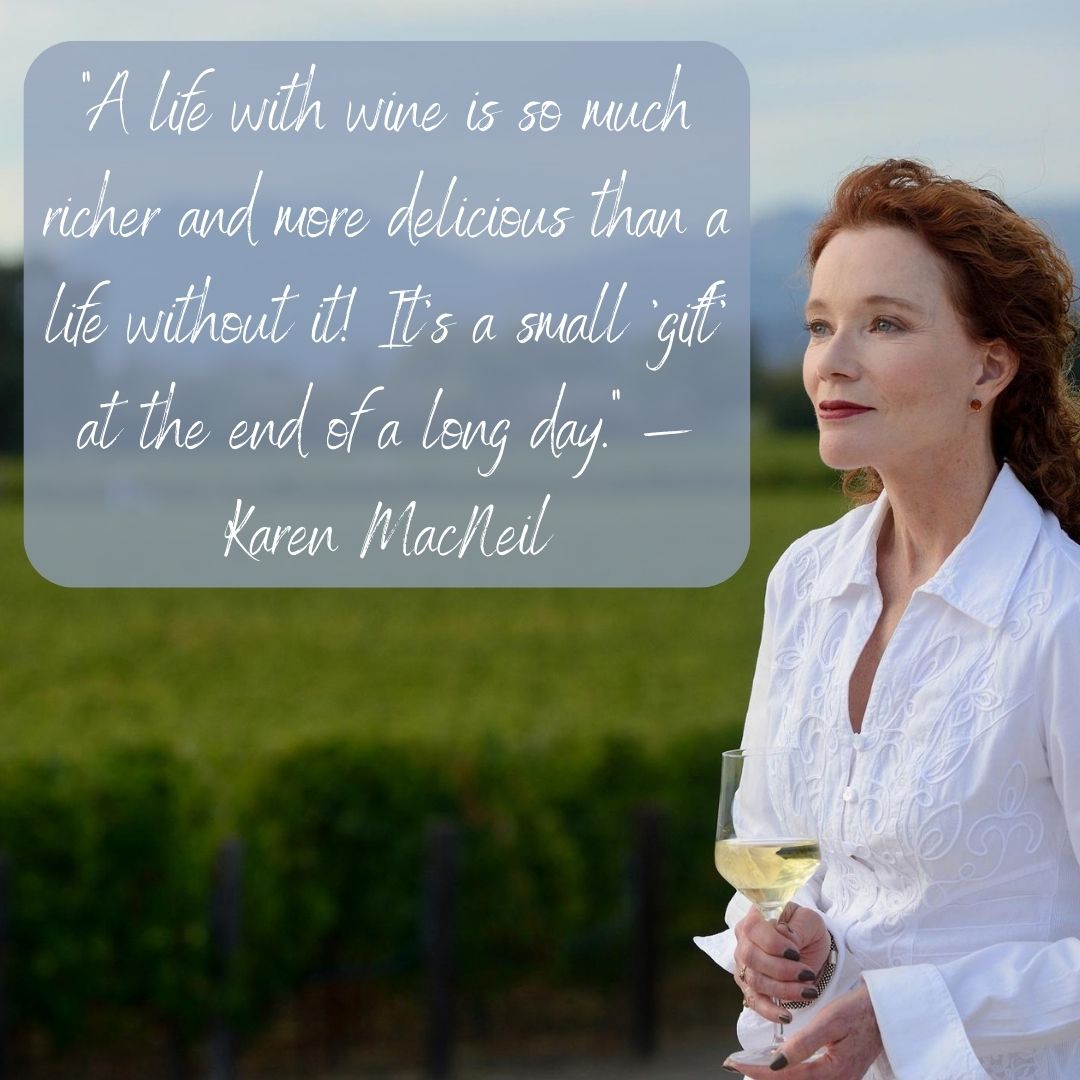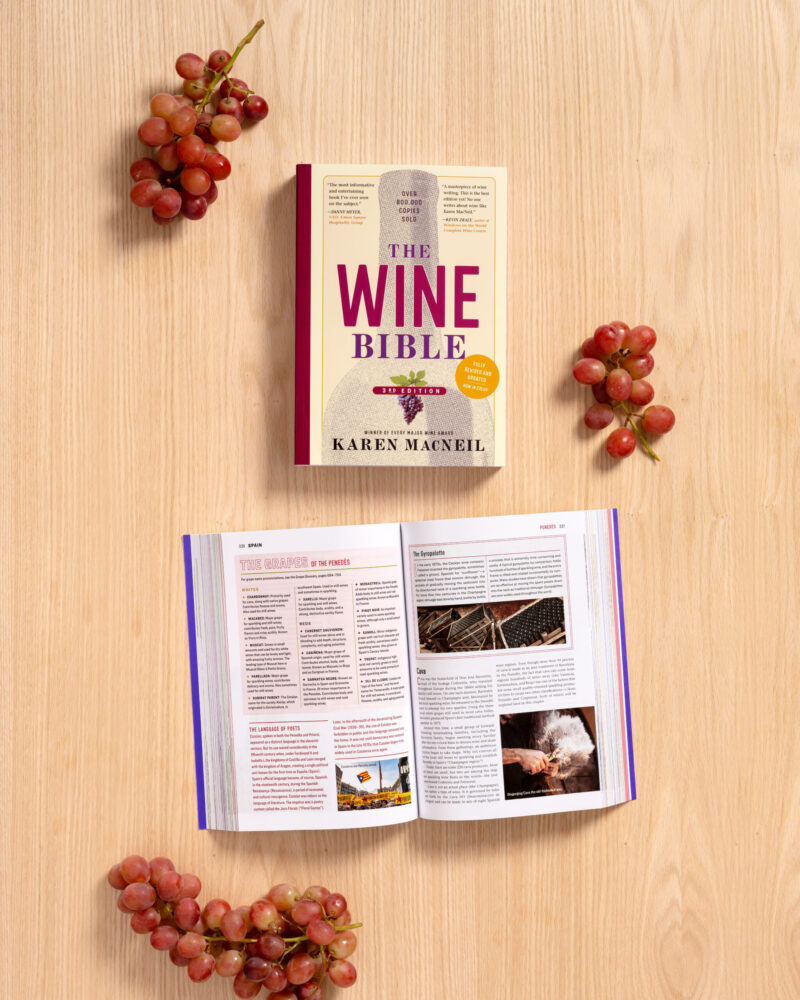Wine expert Karen MacNeil says, “Life with wine is richer and more delicious than life without it!” And, we couldn’t agree more. Life is better with wine (in moderation, obviously).

And, help you fall in love with what’s in your glass Even, we asked Karen 10 wine-related questions.as author Wine Bible (This book just came out in its third edition and is considered the best-selling wine book in the United States, with over 800,000 copies in print.) She did write the book about wine.
For someone new to wine, what do you think is the best way to use/read it? Wine Bible yes?
Karen McNeil: Just open the book anywhere and start reading! Each page has an engaging side frame and story.most people have read Wine Bible(WB) In this unconventional way. It’s also fun to buy a bottle of wine, look for the region in the World Bank, and read while you drink.
What updates in this release are you most excited about? Why?
Karen: I love this new chapter about the UK, which is now making delicious sparkling wines that have a lot in common with Champagne. Climate change is harming many wine-producing regions, but it is also benefiting England, making the climate conducive to making quality wine. I also like the new chapter called “In the Beginning…Wine in the Ancient World.” charming!

Are there any wine regions or grapes you recommend people try if they are interested in trying something new and different from the Chardonnay, Pinot Noir, and Cabernet Sauvignon that are commonly found on most wine lists and grocery store shelves? Is there any hidden value?
Karen: Spain and Portugal make delicious wines from indigenous varieties such as Tempranillo and Touriga Nacional (both red grapes). The wine culture of these two countries has a long history, the wines are of excellent quality, and they are all stolen! Lots of great wines under $25.
What if someone wants to start learning about wine but is at a loss as to where to start?
Karen: Wine is very popular. It really doesn’t matter where you start. Just choose a country and start drinking wine from there. If you drink a country’s wines for six months, you’ll find that you actually develop a pretty good idea of what those wines taste like. Then move to the second country. So on and so forth. Just get started!
In your experience, what is the most commonly misunderstood thing about wine? What are the common mistakes newbies make?
Karen: People often gulp down alcohol quickly. If you swallow it too quickly, you won’t taste any of the flavor and you won’t know how delicious the wine really is.
What is your favorite wine and food pairing? Is there anything you do regularly that might surprise people?
Karen: Champagne and potato chips are my go-to. There’s also rosé wine and grilled cheese sandwiches.
We see a lot of wines on the market specifically featuring low calories. Any thoughts on these?
Karen: Low-calorie wines tend to be highly manipulated. I’d rather have a half-full glass of wine than a glass of (usually not very good) low-calorie wine.
Are there any categories of wine or regions that you see really taking off this year? Have you ever seen people lose interest?
Karen: Global interest in wine is exploding. It’s all in good fun.
What wine trends do you expect to emerge in 2023? Is there anything you wish would disappear?
Karen: Wine takes time – years. It usually takes 10 years or more to plant a vineyard, make and age the wine before it can be released. Wine is the ultimate non-trend. I love it for that.
We’re sure it’s like asking you to pick a favorite child, but if you could only have three drinks in your glass for the rest of your life, what would they be?
Karen: Champagne (from France of course), Pinot Noir from California and Oregon, Riesling from Germany and Austria.
Thank you so much Karen for taking the time to answer our questions! And, for the record, we couldn’t agree more with her on low-calorie wine. Cheers, y’all! —Jenn
Some content/photos excerpted from Karen MacNeil’s The Wine Bible, 3rd Edition. Worker Publishing © 2022
